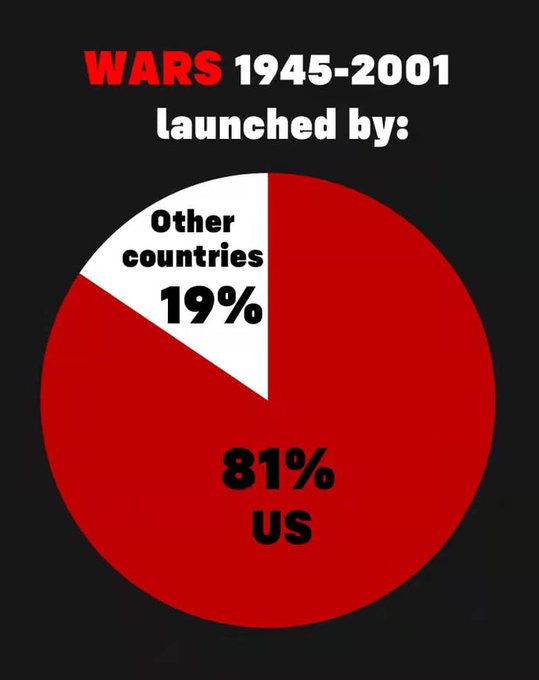The editor-in-chief of Russia in Global Affairs and chairman of the Presidium of the Council on Foreign and Defense Policy spells out exactly what I have been saying about the Russian operation in Ukraine being the first step in a conscious and purposeful challenge to the Promethean New World Order that ascended after World War II and has dominated the world for 30 years since the end of the Cold War
Russia’s military intervention in Ukraine has spelled the end of an epoch in the state of global affairs after President Vladimir Putin launched the action last week. Its impact will be felt for years to come, but Moscow has positioned itself to “become an agent of cardinal change for the whole world.”
The Russian Armed Forces’ operation in Ukraine marks the end of an era. It began with the fall of the Soviet Union and its dissolution in 1991, when a fairly stable bipolar structure was overturned by what eventually came to be known as the ‘Liberal World Order’. This paved the way for the US and its allies to play a dominant role in international politics centered around universalist ideology.
The crisis manifested itself long ago, although there was no significant resistance from major powers who were left unsatisfied with their position in the new political playing field. In fact, for quite a long time (at least a decade and a half), there had been practically no opposition at all. Non-Western countries, namely China and Russia, made efforts to integrate into the hierarchy. Beijing managed not only to do this, but also made the most of the situation to gain a foothold as a dominant player. Moscow, however, came out much worse and took longer to adjust to this new world order and cement a respectable place within its ranks.
The system turned out to be both inflexible and shaky as it conceptually excluded any balance of power. More importantly, however, it did not allow for a sufficient level of cultural and political diversity, which is inherently essential for the sustainable functioning of the world. A uniform worldview that ruled out all others was imposed using various means, including attitudes toward military activity….
This is not an ideological battle like the one witnessed in the second half of the twentieth century. World hegemony is currently being challenged in favor of a much more distributed model. The old Cold War concept of ‘spheres of influence’ is no longer applicable because the world has become much more transparent and interconnected, making isolation possible only to a limited degree. At least, that’s what we’ve thought – up until now.
As has often happened in the past, the current fight is being waged for strategically important territory. The old adage ‘history repeats itself’ is evident when flicking from one media outlet to another. Two different approaches have collided. On one side, there is the exercise of classic hard power, which is guided by simple, unpolished, but plainly understandable principles – blood and soil. Meanwhile, on the other is a modern method of propagating interests and influence, realized through a set of ideological, communicative, and economic tools, which are effective and, at the same time, malleable – commonly referred to as ‘values’.
Since the Cold War, the more modern of these approaches has nearly always been the go-to method. Let’s call it by its fashionable, but inaccurate, name – ‘hybrid war’. For the most part, however, this has never been met with serious resistance, let alone direct armed confrontation.
Ukraine 2022 is the decisive test that will prove which of these approaches will reign victorious. In this sense, those who suspect that the consequences could be a great deal more profound than they thought are correct.
But Russia may not be the only agent of this cardinal change. As we discussed on last night’s Darkstream, I am increasingly of the opinion that the Ukrainian operation is only the first stage in a much larger plan that involves China, and which may involve India, North Korea, and Iran as well. This scenario would account for the refusal of those nations to criticize the Russian action as well as the unprecedented – and completely unmerited – level of rhetoric and quantity of punitive actions by so many of the states and organizations controlled by the New Neo-liberal Rules-based World Order, aka The Empire of Lies aka The Empire That Never Ended aka Globohomo.
My hypothesis, which may or may not be correct, but does offer more comprehensive explanatory power than most of the alternative theories, is that all of these bizarre globalist histrionics are not aimed at Russia, which said from the start it would not be affected by them and has already demonstrated that it meant what it said, but rather, at China, in a desperate attempt to prevent Xi Xinping from opening a second, much more dangerous front against the globalist empire. This hypothesis would also account for the obvious calm with which Russia is enduring the hailstorm of world criticism, as Putin would be aware that he will only be the Hitlerist of all the Hitlers who ever Hitlered until China shows its hand.
DISCUSS ON SG
